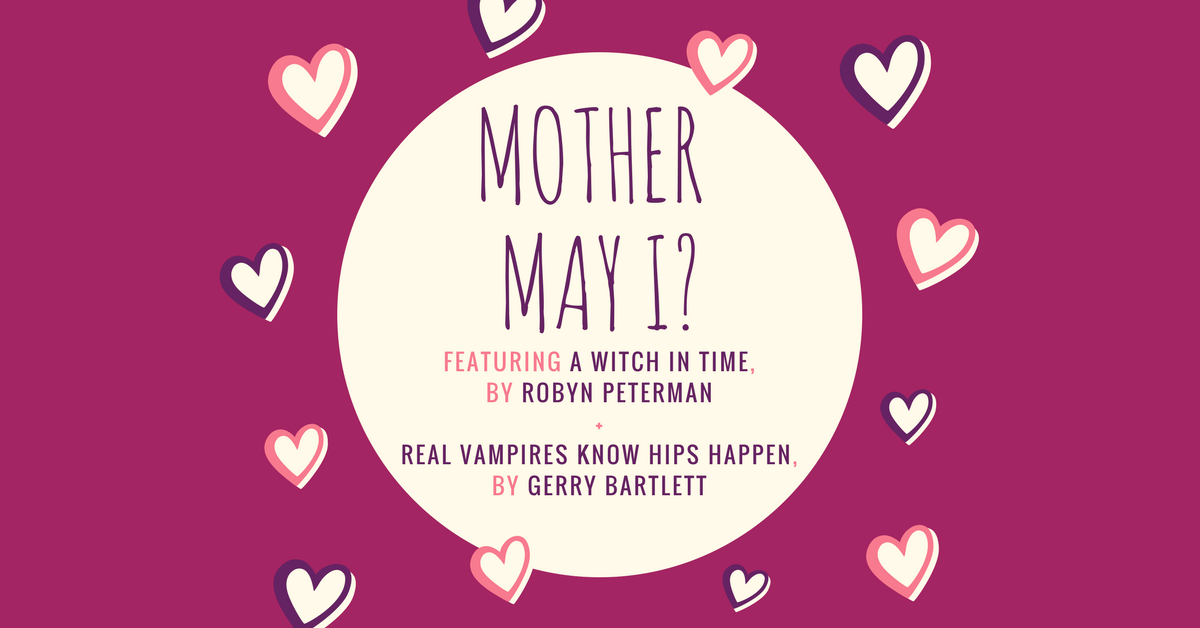I'm finishing up the Real Vampires series by Gerry Bartlett and contemplating a common vampire trope: the newly turned vampire raring to explore new powers and heightened senses. These newbies are usually a foil for older vampires to demonstrate their wisdom and their restraint or an opportunity for the protagonist to be a hero/heroine. These are always fun scenes. In the Real Vampire books, we have Israel Caine and Sienna Star, neither of whom were too happy to become vampires. In the Sookie Stackhouse novels, the lovely Jessica is turned and goes hog wild with her new abilities. There are others, but the plot points are similar. These new vampires (or werewolves or faeries or witches) are a group of young people (no matter their chronological age) who want to rock and roll all night, and party every day (well, except the vampires who are dead until dark, naturally) and a group of elders who want to curb their enthusiasm. The problem—for me, at this point in my reality—is that the elder statesmen rarely have much luck curtailing their "children." Not what I wanted to hear right now. I have one son working to embody Kiss’ classic song and one who is enjoying the role of elder statesman (despite being 90 seconds younger). I'm not at all sure what to do with my wayward son. I've explained that he's free to carry on (I'll try to stop now), but that there are consequences to all of our choices. Like Glory and Jerry in the Real Vampire series and Vampire Bill in the True Blood series, I'm walking a fine line (with his father, of course) between enabling our son and pushing him so far away he won't listen to a word we say. Not only is that line mighty thin, but my eyes are going anyway, and I can't really see it clearly or follow it accurately. Arrgh!
What to do, what to do? Some would say, "Have faith and let it ride." Others tell me to get all up in his business and take control of a kid who doesn't know how to control himself. A third party heard from might suggest bigger carrots with commensurate sticks. Military school has been mentioned. I've entertained thoughts of moving to Nepal until his adolescence is over. I'm not sure any one of these strategies is the right one. I'm not entirely sure there is a strategy that will work. I am sure that the situation is aging me in a way vampires never do.
I have friends who delight in reminding me of my own misspent youth. They tell me to chill the hell out and that my boy is just doing what boys do (which, they say, is a lot better than what I did). I'm reminded that my son has a path that differs from mine, but that he will find his way. I'm not so sure. He seems so very, truly adrift. And his choices seem so meaningless and devoid of a moral center, or the recognition that to the victor go the spoils. It's not enough to want to be successful, one has to work to achieve anything. My wayward one seems to have missed these messages.
Others tell me that I'm making the problem worse by not coming down harder on him. They say I should take away his social life, electronic devices, and even his driver’s license when he earns it this summer, all in an effort to control his misbehavior. I know from my own experience, though, that such tactics just produce liars and children who take unnecessary risks. So I don't think I'm going to go in that direction either.
I've read oodles of parenting books. They talk about incentivizing kids, which, in my day, was called bribery. I'm actually all for that; I don't work for free and neither should kids. By the same token, they don't get money for nothing (see, I didn't extend that line, so I'm not in dire straights). My kids have to earn their allowances. The problem is that we've tried that. In spades. We've dangled huge carrots as well as Damocles' Sword. Nothing seems to motivate this kid. So scrap yet another strategy.
My husband and I are lost. We don't know where to go from here. In my beloved books, it's only the threat of final death or years of torture that seem to get the fledgling vampires under some semblance of control. I dread the thought that jail or bodily injury (or worse) could be the only road to redemption here. But the truth is I have no control at all. Over my son's behavior or anything else for that matter. It truly, deeply sucks – and not in a bloody, satisfying way. It sucks in that helpless, pouty, powerless way that all mortals and immortals despise.
So I will suck up that suckiness. Resistance is futile. We'll continue to navigate the turbulent waters of teenage angst and hope none of us drowns. Because we're not vampires and we need to breathe. Deeply.



















